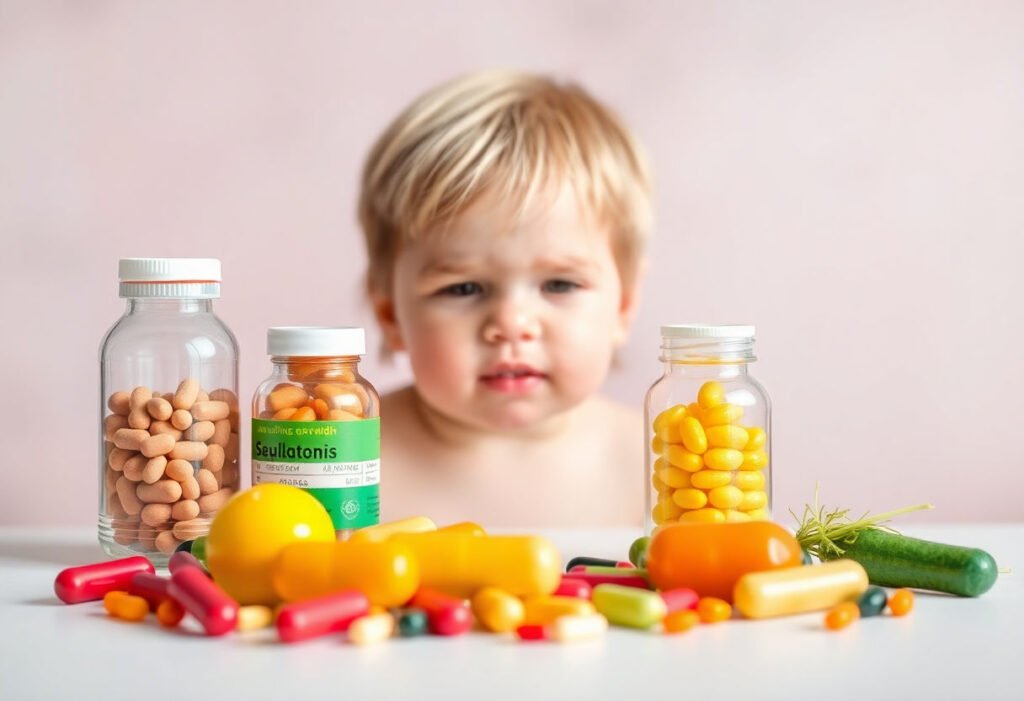Vitamins act like tiny helpers in our bodies. Each plays a special role in a child’s growth. Kids need Vitamin A for good eyesight and healthy skin. Vitamin D helps build strong bones. Without enough Vitamin C, wounds take longer to heal. This guide will cover all the essential vitamins children require. You will learn their importance and how to include them in meals. From improving eyesight to boosting energy, these vitamins are key. Keep reading to make sure your child gets the nutrients they need for healthy growth.
Key Takeaways
- Children need essential vitamins like A, C, D, E, K, and B-complex to grow and stay healthy.
- Each vitamin has a special role, from helping vision and bones to boosting energy and brain function.
- Natural food sources provide important vitamins; a balanced diet is key.
- Knowing symptoms of vitamin deficiencies helps in keeping children healthy.
- Consult healthcare professionals when considering vitamin supplements for children.
Importance of Vitamin A
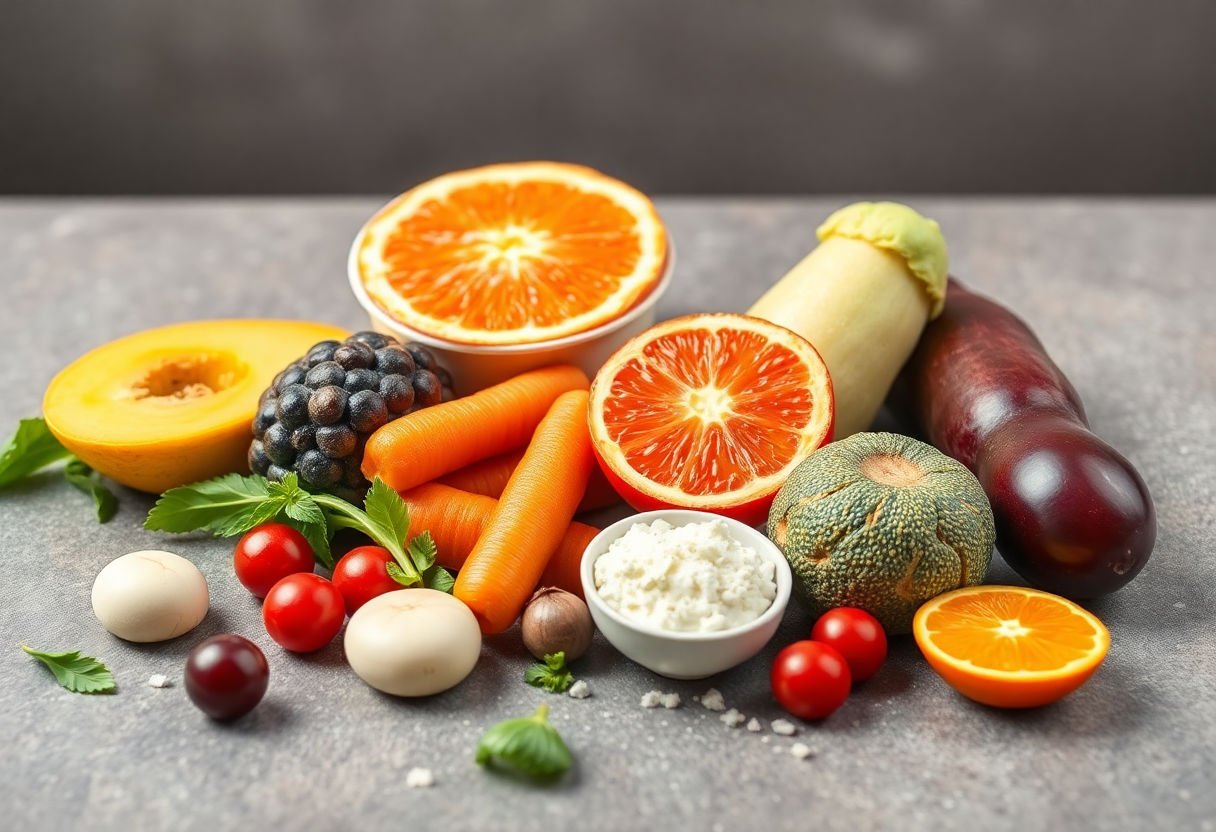
Vitamin A helps kids see well, especially in low light. Think of it like giving their eyes night vision. Besides vision, it plays a role in keeping skin and tissues healthy. It also boosts the immune system, making it easier for kids to fight off colds and infections.
Kids might get vitamin A from foods like carrots. These orange veggies contain beta-carotene, which the body changes into vitamin A. Sweet potatoes and pumpkins are other good options. Large amounts of spinach and kale have it too. These foods help provide the necessary nutrients.
Signs of not getting enough vitamin A might include trouble seeing at night. A child might trip or bump into objects more often. Dry skin could also be a clue. If a child shows these signs, checking their diet might help.
For younger children, parents could include pureed carrots or sweet potato in meals. Older kids might like raw carrot sticks or a sweet potato mash. Adding these foods can help meet their vitamin needs.
How much vitamin A does a child need? Ages 1 to 3 require about 300 mcg, while ages 4 to 8 need 400 mcg daily. Teens require a bit more at 600 to 900 mcg, depending on age and gender. Balancing their diet is key to growth and health.
Keeping track of their intake can be part of ensuring they grow up healthy and strong.
The Role of Vitamin C
Vitamin C helps keep our children strong and healthy. It repairs tissues and supports bone growth. Kids need it for a strong immune system too.
Think of vitamin C as a helping hand. Just like how a friend helps us when we fall down, vitamin C helps tissues heal. It’s always ready to fix and maintain the body.
Why is it important for kids to have enough vitamin C? This vitamin helps with wound healing. When children play and get cuts or scrapes, vitamin C helps the skin repair itself faster. It also plays a role in keeping gums healthy.
Look to fruits and veggies for vitamin C. Some great sources include:
- Oranges: A classic choice packed with this vitamin.
- Strawberries: Sweet and full of health benefits.
- Broccoli: A vegetable that’s not just for grown-ups.
- Tomatoes: Common and rich in this nutrient.
You can serve these foods in many fun ways. A smoothie with fresh fruits like strawberries and oranges makes a tasty treat. Add broccoli to a pasta dish, or slice some tomatoes for an afternoon snack.
Vitamin C is a basic part of a child’s healthy diet. By including these fruits and veggies, you’ll help your child grow strong and healthy.
Benefits of Vitamin D
Vitamin D plays a key role in promoting strong bones. It works with calcium to build solid, healthy bones in growing children. Without enough Vitamin D, bones can become soft or weak. This might lead to conditions like rickets, which can cause bone pain and deformities.
Think of Vitamin D as a helper. It helps the body absorb calcium from foods like milk. Without it, much of that calcium would go to waste. Kids need calcium to grow tall and strong, so Vitamin D becomes vital.
Besides bone health, Vitamin D boosts the immune system. A strong immune system keeps kids healthy by fighting off germs. During cold and flu season, this benefit becomes especially important.
Children can get Vitamin D from three main sources:
- Sunlight: The body produces Vitamin D when skin gets sun exposure. Spending time outside helps, but too much sun can harm skin. Finding a balance is key.
- Food: Foods rich in Vitamin D include oily fish like salmon and mackerel. Fortified foods, like milk, cereal, and orange juice, often contain added Vitamin D.
- Supplements: Some kids need extra help getting enough Vitamin D. A supplement can provide that little boost.
Parents should watch for signs of low Vitamin D. These can include bone pain or frequent illnesses. Speak to a healthcare provider if concerned.
Understanding Vitamin E
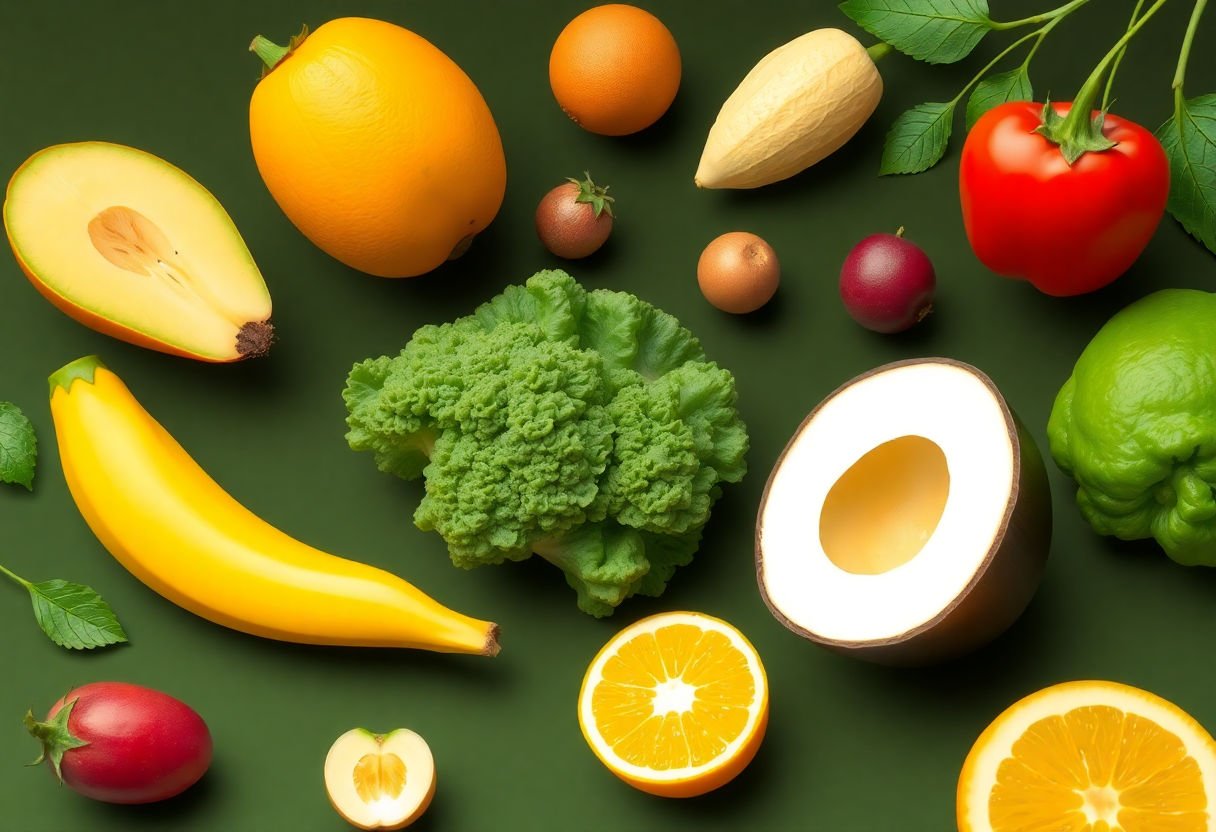
Vitamin E is a mighty defender of the body’s cells. It acts as an antioxidant, which means it fights off harmful invaders. Think of it as a shield that keeps away damaging particles called free radicals. These particles can harm cells and cause health problems.
Kids need Vitamin E for healthy skin and eyes. It helps boost their immune system, which keeps them from getting sick. For growing children, a strong immune system is like having a sturdy umbrella in a storm.
Where do you find this helpful vitamin? Many foods contain Vitamin E:
- Nuts and seeds: Almonds and sunflower seeds stand high in Vitamin E.
- Vegetable oils: Sunflower, safflower, and wheat germ oil are great sources.
- Green veggies: Spinach, broccoli, and avocados provide a good dose.
- Fortified cereals: Many breakfast cereals have added Vitamin E.
Include these foods in a child’s diet to reap the benefits. A handful of almonds or a serving of spinach can provide a healthy boost. Keep in mind that a balanced diet with a variety of foods is the best way to get all the essential vitamins, including Vitamin E.
Remember, while Vitamin E supports health in many ways, too much can be harmful. Always aim for balanced amounts to promote growth and wellness in kids. Keep mealtimes fun and varied to help children enjoy the benefits of this vital nutrient.
The Function of Vitamin K
Vitamin K helps the body in two important ways. First, it helps blood to clot. If a child gets a cut or scrape, blood clotting stops the bleeding. Without it, even small injuries could cause a lot of blood loss.
Second, Vitamin K supports bone health. Bones need Vitamin K to stay strong and grow properly. It helps in the body’s use of calcium, which builds bones. Think of it as a helper that makes sure your bones get the calcium they need.
Food Sources of Vitamin K:
- Leafy Greens: Spinach, kale, and broccoli.
- Vegetable Oils: Soybean oil and canola oil.
- Certain Fruits: Like blueberries and figs.
Most kids get enough Vitamin K from their diet. Those who do not may bruise easily or have frequent nosebleeds. In newborns, low levels can cause bleeding problems, so doctors often give a Vitamin K shot at birth.
Most kids get enough Vitamin K from the food they eat. But make sure to look at their diet and talk to a doctor if needed. Keeping up with Vitamin K can help keep cuts and bruises in check and bones growing strong.
The Importance of B Vitamins
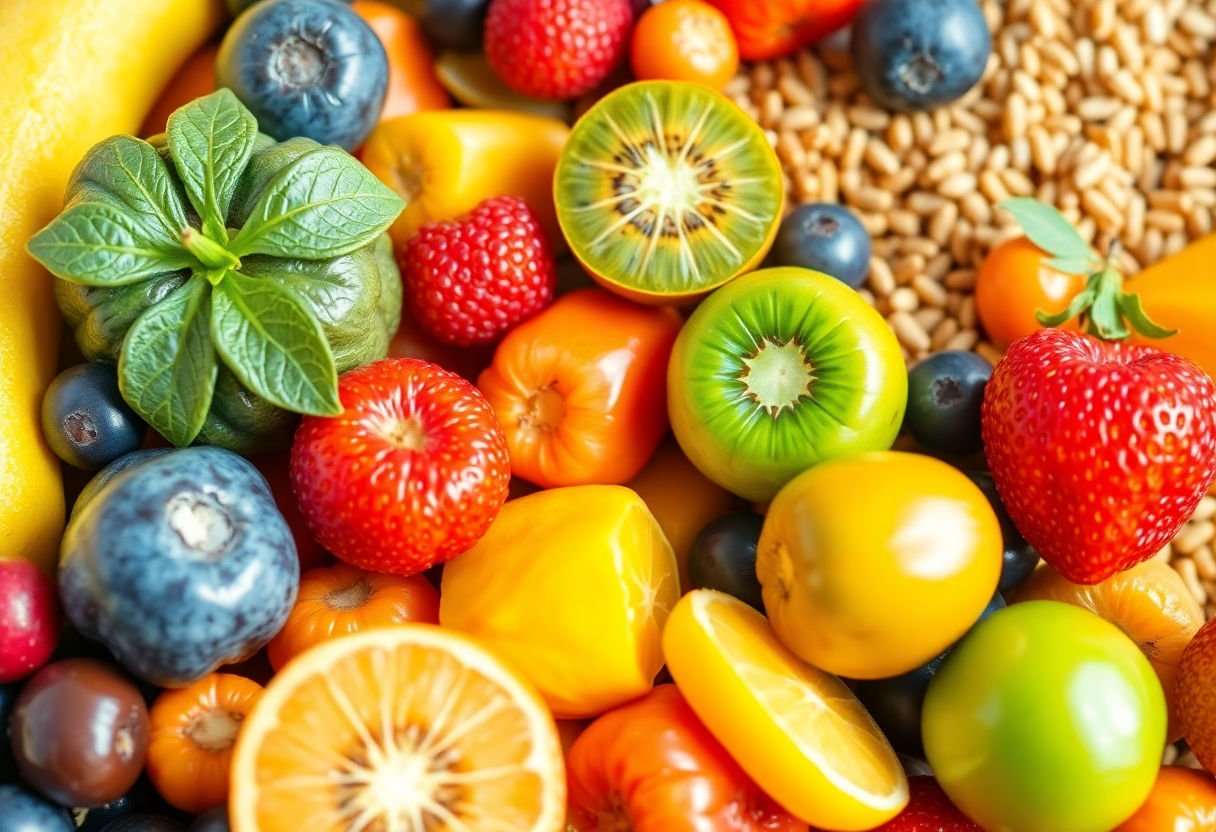
B vitamins help turn food into energy the body can use. Think of them as tiny helpers working hard inside our bodies. They keep kids active and playful all day.
B1 (Thiamine) helps nerves talk to muscles. It’s like a telephone line that sends messages fast.
B2 (Riboflavin) gives skin and eyes a healthy glow. It also helps the body digest food.
B3 (Niacin) keeps skin looking great and supports digestion. It helps turn food into fuel.
B6 (Pyridoxine) plays a role in brain development. It helps kids think, learn, and play better.
B9 (Folate) is important for new cell growth. It supports making new blood cells.
B12 (Cobalamin) works with folate. Together, they make healthy red blood cells.
Get these vitamins from food like:
- Whole grains: Brown rice and whole-wheat bread
- Dairy: Milk and yogurt
- Meats: Chicken and fish
- Vegetables: Spinach and broccoli
Children need these vitamins every day to grow strong and healthy. Keep their diet colorful with fruits and veggies to help them get these key vitamins.
Sources of Essential Vitamins
Children need different vitamins from various foods. These nutrients help them grow strong and healthy. Here are some simple ways to make sure kids get what they need.
Vitamin A helps with sight and helps keep skin healthy. Kids can get it from carrots, sweet potatoes, and spinach.
Vitamin C keeps the immune system working well. It is also good for skin and helps the body heal. This vitamin is in oranges, strawberries, and broccoli. Eating these can make a meal colorful too.
Vitamin D is key for strong bones. It helps the body use calcium. The sun gives us some of this vitamin, but fish like salmon and fortified milk or cereal work too.
Vitamin E protects cells in the body. You find it in almonds, sunflower seeds, and green veggies like spinach.
Vitamin K helps with blood clotting. This keeps cuts from bleeding too much. You get it from leafy greens. Think kale, and Brussels sprouts.
The B vitamins give kids energy and help with brain function. Whole grains, eggs, and meat are great choices.
Planning meals around these foods can help children get the vitamins they need. Mix and match fruits, grains, and veggies. Add some nuts and dairy. A plate full of these foods not only tastes good but can bring a smile to any kid’s face.
Potential Deficiency Symptoms

A child’s body shows signs when it lacks vital vitamins. Vitamin A keeps eyes healthy and skin smooth. If missing, it can lead to weak eyesight or dry skin.
Vitamin C helps with cuts and bruises. Without it, kids may bruise easily or take longer to heal. A frequent feeling of tiredness can hint at a Vitamin C shortfall.
Vitamin D is all about strong bones. Without enough, bones can become soft or weak. Kids might get bone pain or have trouble growing.
Vitamin E protects cells. A deficiency might make muscles weak and lead to coordination problems. Kids need it for proper muscle and nerve function.
Vitamin K makes blood clot. When kids don’t get enough, they may bleed or bruise more easily. A small fall might show larger bruises than expected.
The B vitamins give energy and help the brain. Missing them can make children feel tired, irritable, and unfocused. They are important for energy and brain function, which are key for school and play.
Listen to a child’s body. Look for these signs. A balanced diet helps prevent these problems. Keep these vitamins in their diet to support healthy growth.
When to Consider Vitamin Supplements
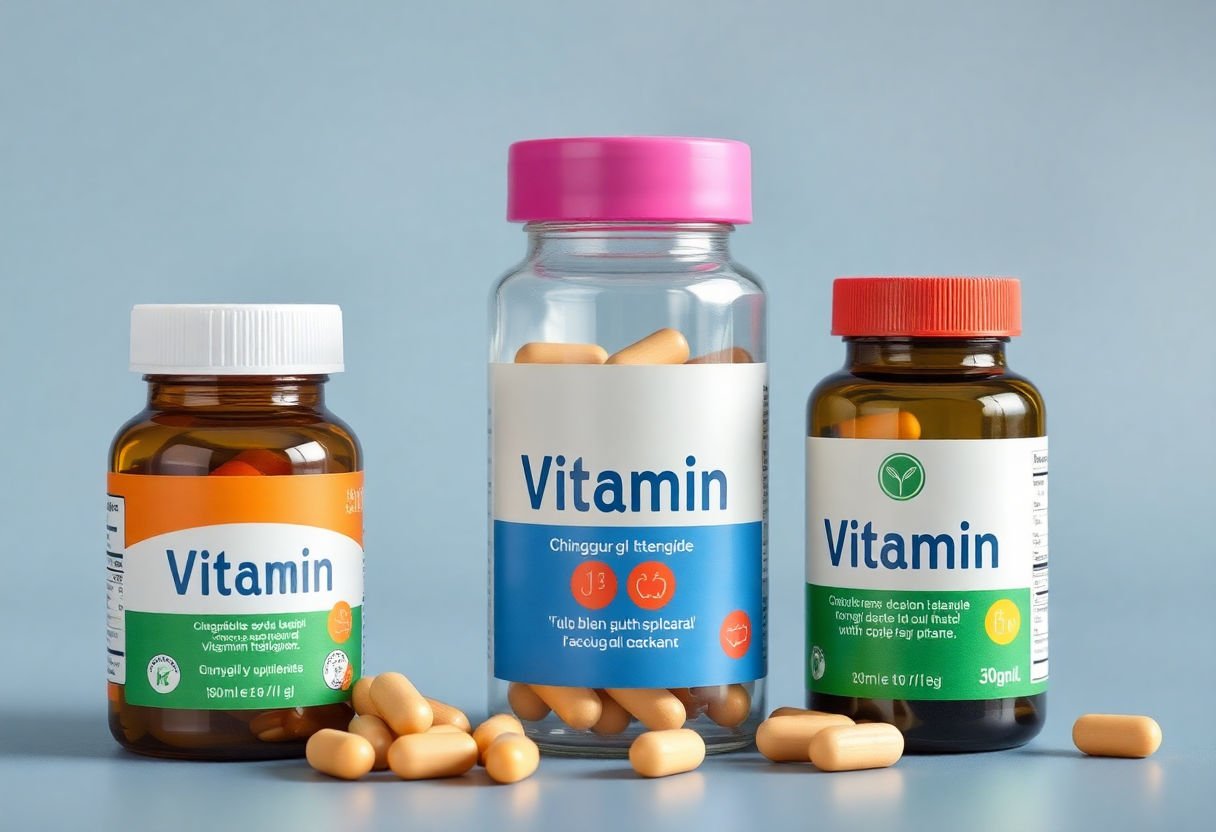
Some parents wonder if their kids need vitamin supplements. Most kids get the vitamins they need from the foods they eat. But sometimes, supplements can help.
Busy Families and Fast Meals
In busy families, cooking a balanced meal can be hard. Fast food or processed snacks may replace home-cooked meals. In these cases, kids might miss out on important vitamins like Vitamin C and B Vitamins. Supplements can help fill those gaps.
Picky Eaters
Lots of kids are picky eaters. Some children never touch veggies or fruits. This can lead to missing vitamins. If a child skips greens, they could lack Vitamin K. If they avoid fruit, they might need more Vitamin C.
Special Diets
Some kids follow special diets. A vegetarian might not get enough Vitamin B12. A child with lactose intolerance could need more Vitamin D. In such cases, supplements can support their health needs.
Illness or Health Conditions
Some health conditions affect how kids absorb nutrients. A child with celiac disease cannot eat gluten, which affects their absorption of vitamins. Supplements can help ensure they receive their essential nutrients.
Growth Spurts
Kids go through growth spurts, and their bodies need extra nutrition. Vitamins like Vitamin A and Vitamin D support fast-growing bones.
Before giving any supplement, talk to a doctor. They can check if a child needs extra vitamins and suggest the right type. Supplements should never replace real food but can offer a boost when needed.
Conclusion
Getting the essential vitamins is key for a child’s growth and health. Vitamins like A, C, D, E, K, and B-complex play crucial roles. They support vision, bone health, and the immune system. A diet with the right vitamins helps prevent deficiency symptoms and supports energy and brain function. Encourage varied meals that include these vitamins. If needed, talk to a healthcare professional about supplements. Investing in nutrition today builds a strong future for every child.
Frequently Asked Questions
What are the signs of vitamin deficiency in children?
Children may show various signs of vitamin deficiency. Some common signs include fatigue, irritability, slow growth, and frequent infections. If you see these symptoms, consult a healthcare provider.
Can too many vitamins be harmful for my child?
Yes, too many vitamins can lead to toxicity and health problems. Too much Vitamin A, for instance, can cause nausea and dizziness. Always follow the recommended guidelines and consult a doctor if unsure.
How can I ensure my child is receiving all necessary vitamins?
A well-rounded diet with a mix of fruits, vegetables, grains, and proteins usually covers the needs. Plan meals that include various colorful foods to ensure your child gets a balance of nutrients.
When should I consider vitamin supplements for my child?
Consider supplements if your child has specific dietary restrictions, chronic illnesses, or if recommended by a healthcare professional. Supplements should complement, not replace, a well-balanced diet.
What are natural sources of essential vitamins for children?
Fruits, vegetables, whole grains, and lean proteins are excellent sources. For example, carrots provide Vitamin A, oranges offer Vitamin C, and fish like salmon is rich in Vitamin D.
